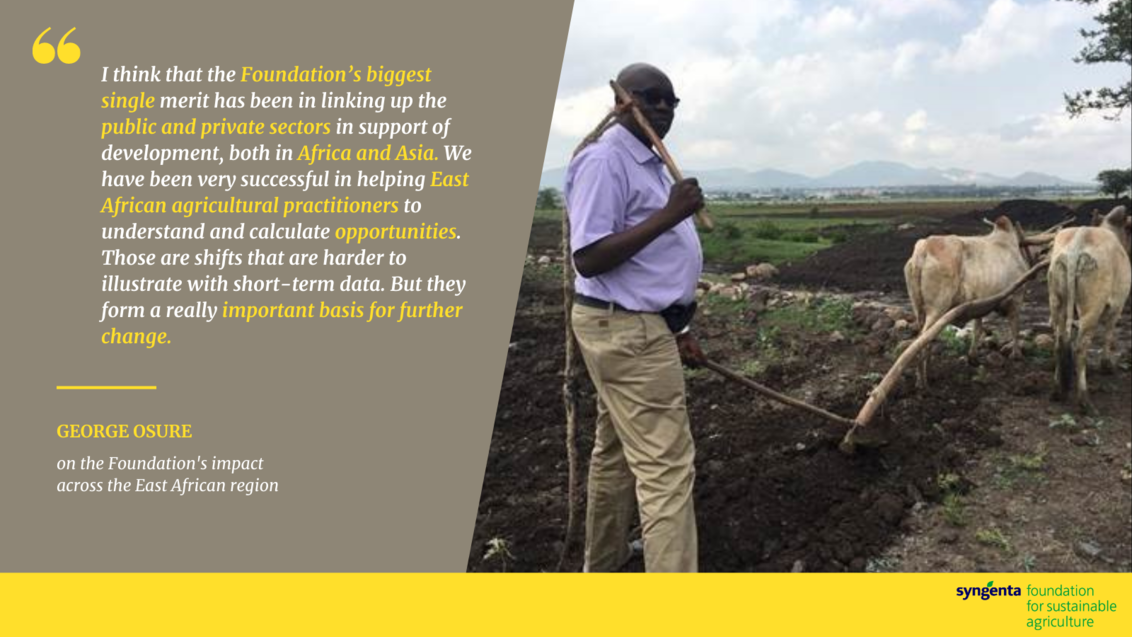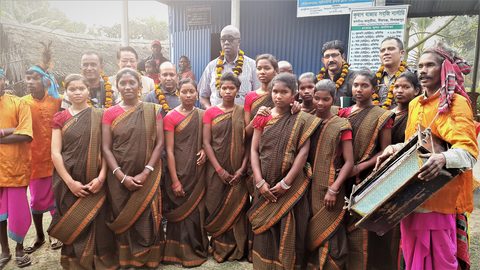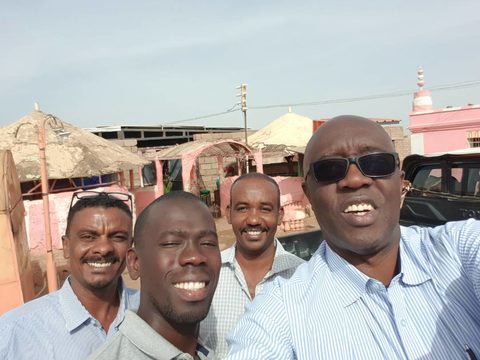Happy staff, mindset shifts and sector linkups

Our East African Director, George Osure, turns 60 this month. Kenyan law thus requires him to retire. But we weren’t going to let him disappear in silence! See what George reveals about high points and low, and read his views on recent history, the near future, and ideal team culture.
Syngenta Foundation (SFSA): The past 15 months have been particularly challenging. How are you and the team?
George Osure: Work is going pretty well now. We went through a difficult period, but now have most things under control. The team adapted really well to the circumstances. We all looked for alternative ways to work*. Now, I’m glad to say, we’re going to the field more often again. So there’s a lot to be proud and happy about.
You joined SFSA in 2009. What were the biggest changes since then?
Twelve years ago, nobody in Kenya really knew the Foundation. In fact, nobody was even interested. That has certainly changed! But the biggest shift I’ve seen in our work is the establishment of a ‘commercial mindset’. To be sustainable, smallholder agriculture has to be commercially viable. In Kenya, that meant doing something that was still pretty unusual here in 2009: bringing commercial people and donors together. SFSA has also built up lots of relationships with farmers. Overall, I’d say that at the beginning I was really trying to create credibility for the Foundation. We’ve come a long way along the credibility path. Of course, though, more can be done. But I leave that to the younger generation now!
Stepping back in time: What was your professional background?
By training, I’m a soil and water engineer. The Ministry of Agriculture recruited me into its Rural Technology Development Unit. Believe it or not, I then worked for General Motors in Procurement, but then went back to development at Care International. I saw that agriculture was where I could have the biggest impact. Topics such as seeds treatment and post-harvest management were really close to my heart. Not everything worked: friends and I launched a startup that tanked. We learned a lot, however, and that experience later helped me advise young rural entrepreneurs.
How did the Foundation start work in Kenya?
One major impetus came from a Syngenta project with smallholders in the Laikipia region. That evolved into the work for which I was recruited. It became the first SFSA field program in Kenya. Alongside working directly with farmers, I also set up our office and began recruiting and leading what became a wonderful team. Around the same time, SFSA in Basel helped establish the BeCA public R&D facility in Nairobi.
What type of team culture did you aim for? How would you describe your style of management?
I tried to create a culture of openness, discussion, and trust. The aim was to empower employees as much as possible, but also for everybody to feel safe. In some Kenyan organizations, that’s not always the case. I want staff to succeed, not struggle. It’s flattering that our discussion culture has – by another route – now become a mainstream approach at the company Syngenta! The crucial thing is for employees to be self-confident and happy. That’s been a learning and adaptation process for me as well as the team. If that all sounds very grand, remember that little things can help the culture a lot, too: Whenever possible, for example, we enjoyed informal team lunches together.
With time, your responsibilities extend beyond Kenya. How would you rate SFSA’s impact across the East African region you ran before retirement?
When one talks about “impact”, it’s easy just to look at numbers. We don’t need to hide here: SFSA achieved rapid uptake in smallholder insurance in Kenya and Ruanda, for example. Seed access has greatly improved. Our radio extension rapidly benefited thousands of farmers. But that, of course, is all very much our partners’ good work as well. I think that SFSA’s biggest single merit has been in linking up the public and private sectors in support of development. SFSA does that really well, both in Africa and Asia. We have also been very successful in helping East African agricultural practitioners to understand and calculate opportunities. Those are shifts that are harder to illustrate with short-term data. But they form a really important basis for further change.
Where have you done less well?
There is still plenty of work to do in shifting smallholders’ mindsets. That includes persuading older farmers to try new methods and helping the young to see that farming can be a great professional future. I also think we should push for more media opportunities to present our work. Kenyan TV is just starting to get interested in SFSA: I look forward to watching more team members from my retirement armchair!
What particularly good SFSA memories will you savour?
There are lots. But one that stands out is a U.S. trip in October 2019. I visited our partners at the Soybean Innovation Lab in Illinois. Together we identified issues hampering Kenya’s soybean sector. The discussions helped us create a Soybean Consortium. That’s now a model used for other crops in Kenya as well. The trip reminded me of the importance of an open mind and willingness to change accepted structures. It also made me more conscious of my role: as a Country Director, I needed to be Kenya’s first-line representative.
You said recently that preparing for retirement feels like the end of term at school. What have you got planned for the long “school” holidays?
First I’ll help find my successor and ensure a proper handover. I’ve always worked to be replaced, so here’s the chance to do it well! Then I want to do some things that weren’t possible while at SFSA, such as advising companies. I shall always be close to the Foundation, however, and aim to stay in touch and point out interesting opportunities.
And in quieter moments?
For my sins, I’m a huge Arsenal fan. I now look forward to following their fortunes even more closely and teasing former colleagues who, for some strange reason, support other London football teams. But first and foremost, I have a beautiful family and will now have more time to be with them all.
- Here’s an example of how our Kenyan staff tackled Covid.


